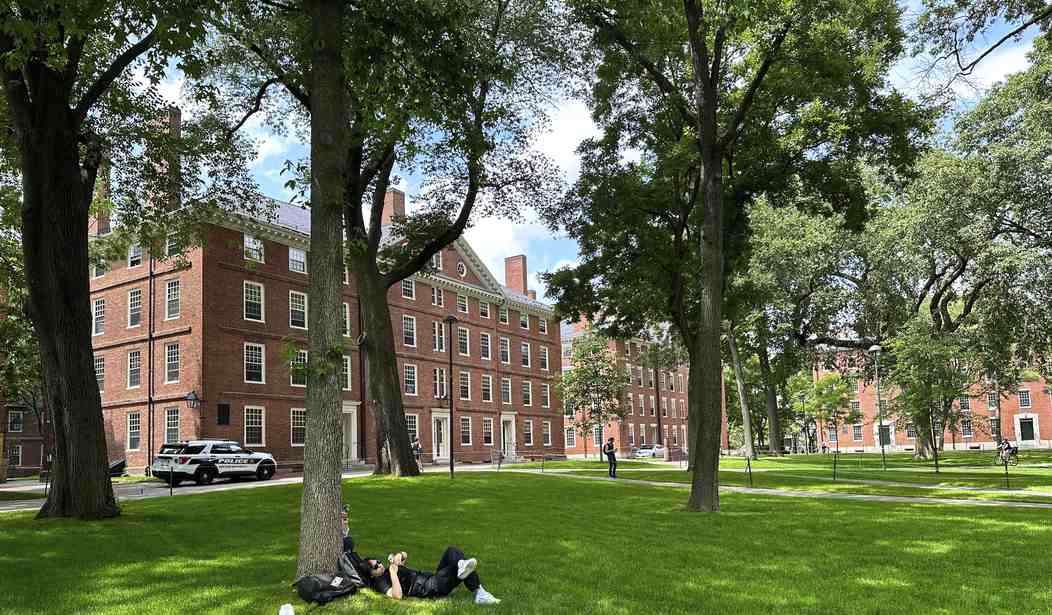When I whisked myself off to college back in the proverbial day, I was just as interested in buying four more years of being a kid as in a higher level of education. Yet, four years later, I had acquired a sense of structure, self-discipline, and teachability that prepared me for a successful career in the real world.
My oh my, how times have changed.
Higher education in America faces a multi-faceted crisis, including, in many cases, a lack of focus on practical education, activist politicization, declining enrollment, and, as a result, financial concerns. Despite these troubling trends, writes George Washington University Law School Professor Jonathan Turley:
[A]dministrators and faculty appear entirely oblivious and unrepentant. They continue to alienate many in the country who view schools as pursuing indoctrination rather than education.
As a result, according to polling by Gallup, "Americans' confidence in higher education is down sharply."
ALSO READ:
Harvard to Train 'Planetary Healers' to Save World From
'Climate Change' and 'Structural Racism'
Here We Go Again: Students Prepping for Even More Pro-Hamas Campus Protests This Fall
Does a College Degree Automatically Mean Success? More Young People Say No
As Turley wrote in a recent column, higher education's self-inflicted wounds are hardly surprising.
Trust in higher education is plummeting to record lows. ... [T]here has been a record drop in trust in higher education since just 2015. Not surprisingly, given the growing viewpoint intolerance on our campuses, the largest drops are among Republicans and Independents.
There has been a precipitous decline in enrollments across the country as universities worry about covering their costs without raising already high tuition rates. From 2010 to 2021, enrollments fell from roughly 18.1 million students to about 15.4 million.
There are various contributors to the drop from falling birthrates to poor economic times. However, there is also an increasing view of higher education as an academic echo chamber for far left agendas. For many, there is little appeal in going to campuses where you are expected to self-censor and professor reject your values as part of their lesson plans.
Also unsurprising, Turley observed, surveys show that many departments have purged their ranks of Republicans, conservatives, and libertarians.
Education, or Indoctrination?
Let's first be clear. Contrary to the beliefs of left-wing professors and other educators, indoctrination is not education.
Educator Manisha Kumar argues that indoctrination is not education because (emphasis, mine) “education involves the seeking of facts, and learning about what is the truth, and what is not. Indoctrination is aimed at influencing people to believe in facts, without being able to back up these newfound facts with anything but opinion.”
Moreover, writes Turley, "The academic echo chamber may be killing educational institutions, but the intolerance still works to the advantage of faculty who can control publications, speaking opportunities, and advancement with like-minded ideologues."
We are killing our institutions through an abundance of ideology and a paucity of courage. Recently, interim Columbia President Katrina Armstrong actually apologized to students who took over and trashed a building in pro-Palestinian protests.
As Turley also notes:
People are now evading campuses with online programs. For those of us who believe in brick and mortar educational institutions, we may be watching a death spiral for some universities and colleges as administrators and faculty treat their students as a captive audience for their ideological agendas.
A 2022 study by law professors from Georgetown University and MIT found that only nine percent of law professors are conservative.
The study, which aimed to investigate law professors’ beliefs surrounding the legal system, included questions regarding participants’ demographics, beliefs about central issues of the law and views concerning specific legal theory issues.
Roughly 555 professors were recruited by email from the top 50 law schools, with an additional 112 partaking in a public version of the survey accessible through an online link. Of the sample of professors, however, only 9.1 percent identified as conservative, with 77.9 percent identifying as liberal.
The results of this paper are similar to those of a 2017 study that concluded 15 percent of law school professors were conservative.
Hence, law schools are churning out a preponderance of activist attorneys and judges, with the latter often fond of "legislating from the bench."
Meanwhile, as I reported on Wednesday, according to a recent survey, Generation Z — people born between 1997 and 2012 — college graduates continue to be fired in "record numbers." Employers cite concerns in areas such as communication skills, lack of professionalism and motivation, and the need of Gen Z-ers to be constantly told what to do versus possessing initiative. Are you shocked? Me, neither.














